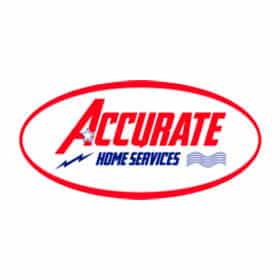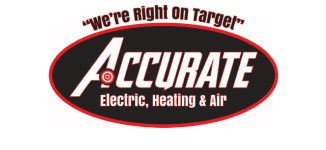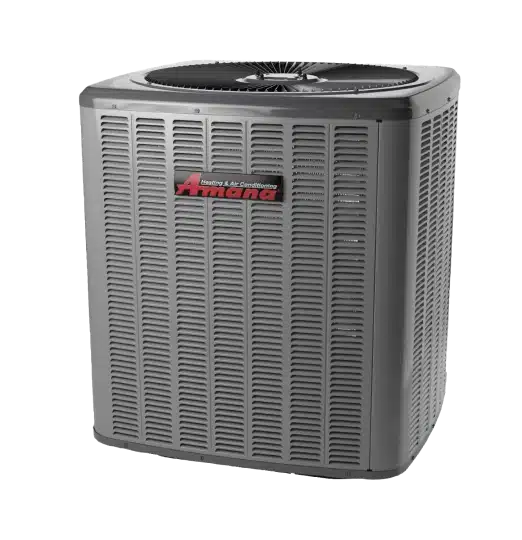When your old HVAC system is nearing the end of its lifespan or you’re in the process of constructing a new home, it’s important to choose an HVAC system that will meet your future needs. Unfortunately, there are a lot of different options out there on the market that can make the process of deciding on a particular system challenging. To help you better understand your options, we’re going to go over the most common types of HVAC systems below.
Furnaces
Furnaces are one of the most popular heating systems used throughout the country due to their versatile fuel options and their overall affordability. Furnaces can run on one of four different types of energy: electricity, natural gas, heating oil, and/or propane. Units that burn fuel will create toxic exhaust fumes that must vent directly to the outdoors. These do have a higher safety risk, as toxic fumes that back up indoors can be harmful to your health and even fatal in some instances.
Furnaces are categorized into two different efficiencies, which are standard and high-efficiency. Furnaces that are powered by electricity have an efficiency level of 100%. That is, 100% of the fuel (electricity) used becomes heat for your home, so they’re inherently considered high-efficiency systems. Standard furnaces will have an efficiency rate of around 80%, where high-efficiency furnaces will have an efficiency of around 90% or more. High-efficiency models tend to come at a higher upfront cost. However, they offer lower operating costs over their lifespans.
Heat Pumps
Another option for heating homes in mild Texas climates is a heat pump. This system functions solely on electricity and can provide both heating during the winter and cooling during the summer. Some heat pumps can even reach efficiency levels up to 400 or 500% during the winter months. This makes them perhaps the most energy-efficient heating option on the market.
Heat pumps can come in both ducted and ductless models. Ducted setups use traditional ductwork to deliver hot air throughout your home. Ductless mini-split systems use indoor air handler units to deliver warm air to each individual room in your home. Both require the use of an outdoor condenser unit.
It’s important to note that there are two main types of heat pumps, air-source and ground-source (also called geothermal). Air-source heat pumps transfer heat from the air, while ground-source heat pumps transfer heat from the earth below ground level. Because that area remains at a much more consistent temperature than the outdoor air, ground-source heat pumps are effective in all climates, regardless of how cold it gets.
On the other hand, air-source heat pumps are only efficient at temperatures above freezing. This is why they’re only recommended for mild climates. When temperatures dip below freezing, they switch over to auxiliary heating. This is where an internal heating element powered by electricity provides heat, which isn’t anywhere as efficient as when the heat pump is operating at temperatures above freezing. Air-source heat pumps tend to be more common due to installation being less involved, as geothermal systems require digging deep into the ground to install their coils.
Central Air Conditioning
A central air conditioning system is another option for homeowners looking for a convenient cooling option for their homes. This type of system operates like a heat pump, utilizing an outdoor condenser unit to expel heat from the air indoors. Central air conditioning systems can be installed that have a wide variety of efficiency options, with more energy-efficient models coming at higher purchase prices.
Comparing Lifespans
When deciding what HVAC system to invest in for your home, one really important factor to consider is the system’s overall lifespan. Furnaces that burn natural gas and propane are rated to last for about 15 to 20 years, while those burning heating oil can last 20 to 25 years. Additionally, electric furnaces are rated for between 20 and 30 years.
Heat pumps have a lifespan of around 10 to 15 years. Central air conditioning systems have a lifespan of around 15 to 20 years. All of these estimated lifespans assume that the system receives regular maintenance and prompt repairs (when necessary).
Considering Climates
One of the most significant factors that you’ll need to consider is the climate that your home is in. If you regularly experience temperatures below freezing, then a heat pump may not be the best option. Historically, heat pumps have had trouble in extreme cold temperatures because of the lack of heat energy within the air. Modern systems tend to have the auxiliary heating functionality we mentioned earlier, but that uses quite a bit of energy.
In these cases, having a furnace is going to be the most reliable. However, you also have the option of investing in a dual-fuel system, which integrates both a furnace and a heat pump. That way, you can set your heating system to switch from the heat pump to the furnace when temperatures hit that inefficient point, using less energy than and putting less strain on the heat pump. This will help optimize operating efficiency and keep your heating bills in check over the winter months.
Operational Expenses
Another important factor to take into consideration when selecting a new heating installation or AC unit for your home is its operational cost. Most homeowners want to choose a system that is going to be efficient and provide them with low energy bills throughout the year. When it comes to cooling your home during the summer months, both a heat pump and a central air conditioning system are going to have similar operating costs. They both run on electricity and have somewhat similar operating efficiencies.
When it comes to heating your home during the cold winter season, there is a stark difference in operating costs. Heat pumps tend to be the cheapest system to run due to their very high operating efficiency. When assessing furnaces, it’s important to consider both their operating efficiency as well as their input costs. As mentioned above, electric furnaces are going to be the most efficient at 100% efficiency.
The prices of fuel and electricity vary from area to area. In general, natural gas is going to be the cheapest to purchase followed by propane and heating oil. However, electricity often costs more per unit than any other type of fuel. It’s important to check the price of energy in your specific location to see which option suits you best.
Upfront Cost
One factor that you simply can’t overlook when selecting a new HVAC system for your home is its upfront cost. Furnaces that burn natural gas tend to have the lowest price floor, but there’s quite a bit of wiggle room between models, brands, and efficiency ratings. Overall, it may be worth comparing the cost of the system and installation to how much your utility bills would be over the next few years.
To get a good base comparison, look at your energy bills from the previous year or so and add them up. To get a theoretical price for a different system type, it takes a bit of math. Once you estimate how much energy the newer system would use to keep your home at similar temperatures, if that total is less than what the installation costs, it may be worth switching. Of course, that assumes you’re able to buy or finance that new system, but that’s where the wiggle room comes in—the variety of systems means there’s a solution for just about anyone.
Reliable HVAC Installation Service
Accurate Home Services offers reliable HVAC installation service for the Crandall, TX community. We can assist with all your electrical, indoor air quality, air conditioning, and heating needs. Simply call us today to book your next service consultation.




